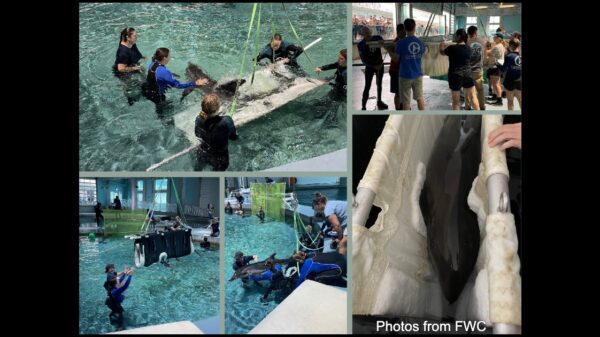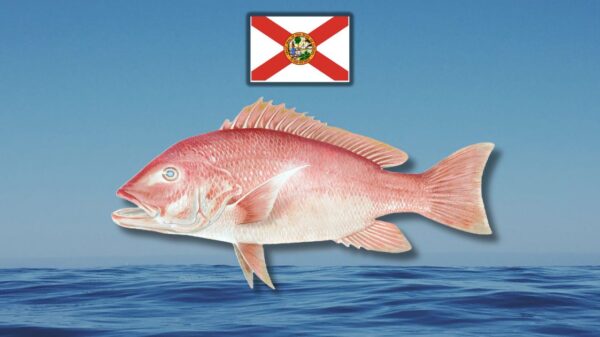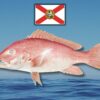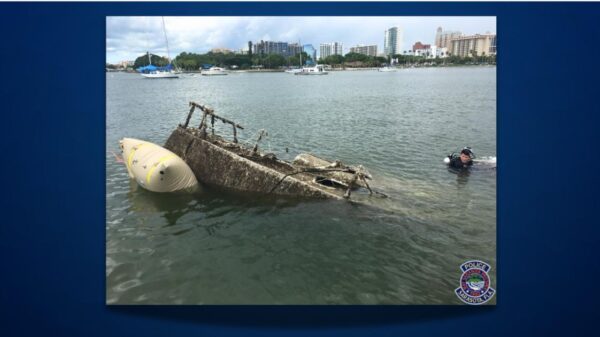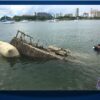Below is an update from Florida Fish and Wildlife Conservation Commission‘s Research Institute on the 2023- 2024 Right Whale Calving Season.
April 15th marked the end of an eventful right whale calving season. This year, a total of 19 calves were sighted in the Southeastern U.S., the calving grounds for the species. Although this number was better than observed during several recent winters, it needs to be higher and those calves and breeding females need to survive and remain healthy. The population previously has shown that it can grow and persist if human-related stressors such as entanglement in fishing gear and vessel strikes are mitigated. Unfortunately, one of the calves died following a vessel strike and four more are presumed dead after they went missing. For updates on dead, entangled, and injured right whales visit: https://bit.ly/NARWUPDT Learn more about the 2023-2024 mothers: https://bit.ly/46JbSMf
Highlights and lowlights:
• The calf of Catalog #1612 ‘Juno’ was the first calf documented this season. Unfortunately, the calf was struck by a vessel (soon after it was born) and months later passed away from the severity of its injuries in early March.
• Four of the nineteen mothers sighted this winter are first-time mothers. One, Catalog #3780, was seen without her calf later in the season and it is presumed dead.
• The mothers ranged in age from 16 to greater than 42 years old. Five females who haven’t calved in 10 or more years returned to give birth this winter.
• The calf of Catalog #1301 ‘Half Note’ was observed with its mother only once, and in a thin body condition. This disappearance was not unexpected as Half Note lost her last five calves and all appeared thin before they died.
• The calf of Catalog #3260 ‘Skittle’ was also seen looking thin, then disappeared from its mother’s side. The young calf is presumed dead.
• Catalog #1950 died from a vessel strike injury and her approx. 3.5-month-old, dependent calf is presumed dead.
• Five of the twelve calves born last winter returned to the Southeast U.S. as healthy, newly independent yearlings. One of these yearlings was sighted by beachgoers off Brevard County in early February but sadly, was found floating dead near Savannah, GA ten days later. The young female was struck and killed by a vessel.
• No entangled right whales were sighted in the Southeast U.S. this winter, but Catalog #5120, a juvenile female, washed ashore dead in Massachusetts in January with rope from a chronic entanglement embedded in the tissue around the base of her tail.
The remaining mother-calf pairs and other adults now migrate back to their feeding areas in the Northeast U.S. and Canada. A popular early springtime destination for many right whales is in and around Cape Cod Bay where they will continue to be monitored by research partners. At least five mother-calf pairs have been sighted so far by Center for Coastal Studies.
North Atlantic right whales are dying faster than they can reproduce. That’s why every whale counts. Since 2017, these endangered whales have been experiencing an Unusual Mortality Event (UME), during which more than 20 percent of the population has been documented as sick, injured, or dead. The primary threats to the species are entanglements in fishing gear and vessel strikes. There are approximately 360 individuals in the population, including fewer than 70 calving females. The remaining females are producing fewer calves each year. Long-term monitoring of North Atlantic right whales is crucial to tracking their abundance, habitat-use, reproduction, and health, as well as human impacts affecting their recovery. Stay informed and learn more about what you can do to help: https://bit.ly/NOAANARW












